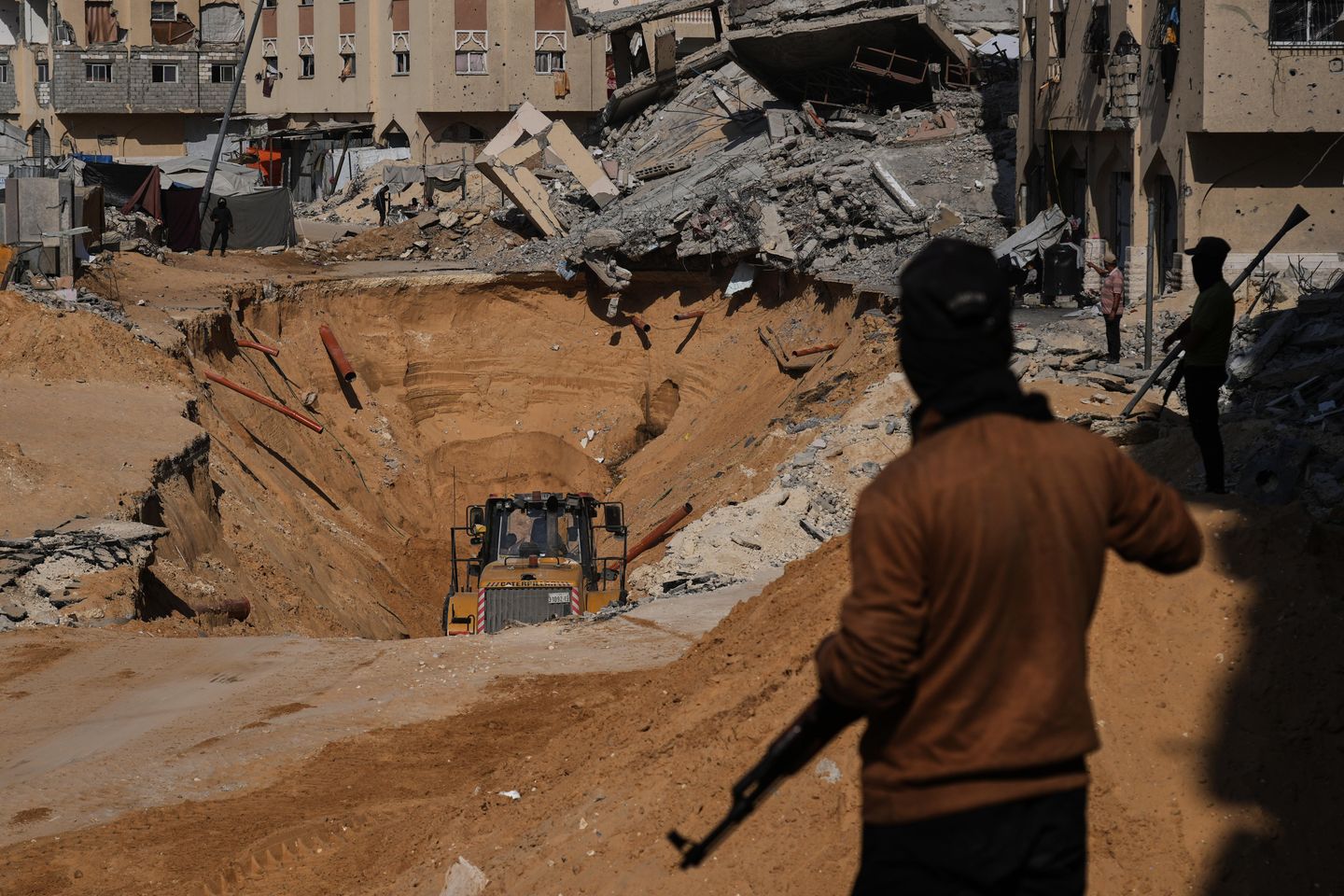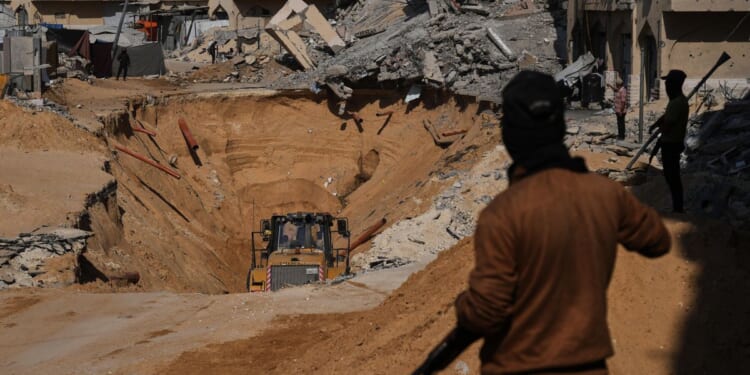
Don’t miss the full story from our staff writers, whose reportage is the basis of this article.
The U.S.-backed ceasefire in Gaza appeared on the verge of complete collapse Sunday after two Israeli soldiers were killed by Hamas fighters, prompting Israel to launch extensive airstrikes across the Palestinian territory and halt humanitarian aid deliveries. The ceasefire agreement, which had been strongly endorsed by President Trump and implemented on October 11, now faces serious questions about its viability.
The deadly incident occurred in Rafah, near the Egyptian border, where Maj. Yaniv Kula, 26, and Staff Sgt. Itay Yavetz, 21, were killed when terrorists fired rocket-propelled grenades at their vehicle. This attack followed a series of weekend incidents targeting Israeli forces, including assaults in Khan Younis and Beit Lahia involving grenades and sniper fire.
Israeli Prime Minister Benjamin Netanyahu responded decisively, meeting with his defense minister and security officials to authorize “strong action” against Hamas. In a statement, Netanyahu declared that Hamas’s “barbaric and irresponsible actions are the biggest threat to the Israeli and Palestinian people,” vowing to respond forcefully against their rule in Gaza.
The Israeli Defense Forces struck dozens of Hamas targets throughout Gaza, including weapons storage facilities, firing posts, and terrorist cells. The military used over 120 munitions to dismantle approximately six kilometers of underground terrorist infrastructure. The IDF emphasized it would continue upholding the ceasefire agreement but would “respond firmly to any violation of it.”
Hamas leaders attempted to distance themselves from the attacks, particularly in Rafah, claiming they had been cut off from units in that area. In a statement, the Iran-backed terrorist group said, “We are not responsible for any incidents occurring in those areas.” Hamas mediators traveled to Cairo Sunday seeking to salvage the ceasefire, with Egyptian officials reporting “round-the-clock” talks to deescalate the crisis.
The renewed violence threatens key components of the ceasefire deal, including the return of deceased hostages’ remains to Israel. All living hostages from the October 7, 2023, attack have been returned, but the fate of the deceased remains uncertain.
President Trump had celebrated the ceasefire as a “momentous breakthrough” during an address to Israel’s Knesset last Monday, positioning it as a step toward broader Middle East peace. However, doubts had persisted about Hamas’s ability to control various factions across Gaza.
The Trump administration separately warned Saturday that it had credible intelligence suggesting Hamas might be planning attacks on Palestinian civilians, including alleged collaborators with Israel, threatening further measures if such attacks proceed.
This article is written with the assistance of generative artificial intelligence based solely on Washington Times original reporting and wire services. For more information, please read our AI policy or contact Ann Wog, Managing Editor for Digital, at awog@washingtontimes.com
The Washington Times AI Ethics Newsroom Committee can be reached at aispotlight@washingtontimes.com.








![Florida Officer Shot Twice in the Face During Service Call; Suspect Killed [WATCH]](https://www.right2024.com/wp-content/uploads/2025/12/Inmate-Escapes-Atlanta-Hospital-After-Suicide-Attempt-Steals-SUV-Handgun-350x250.jpg)








